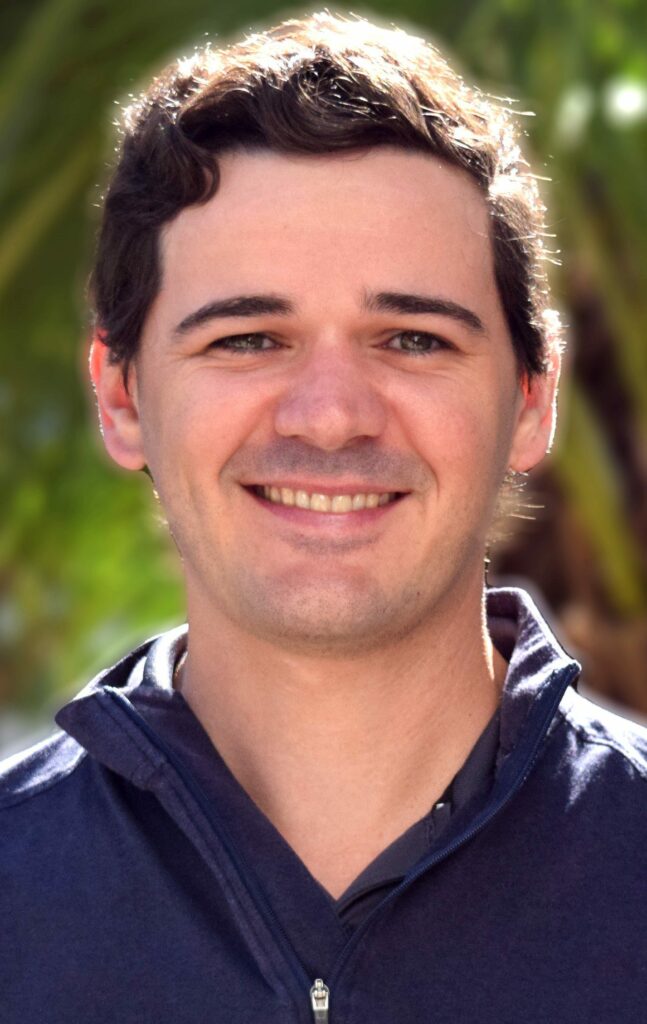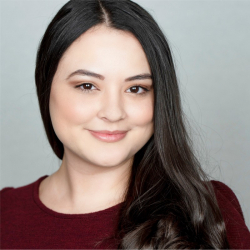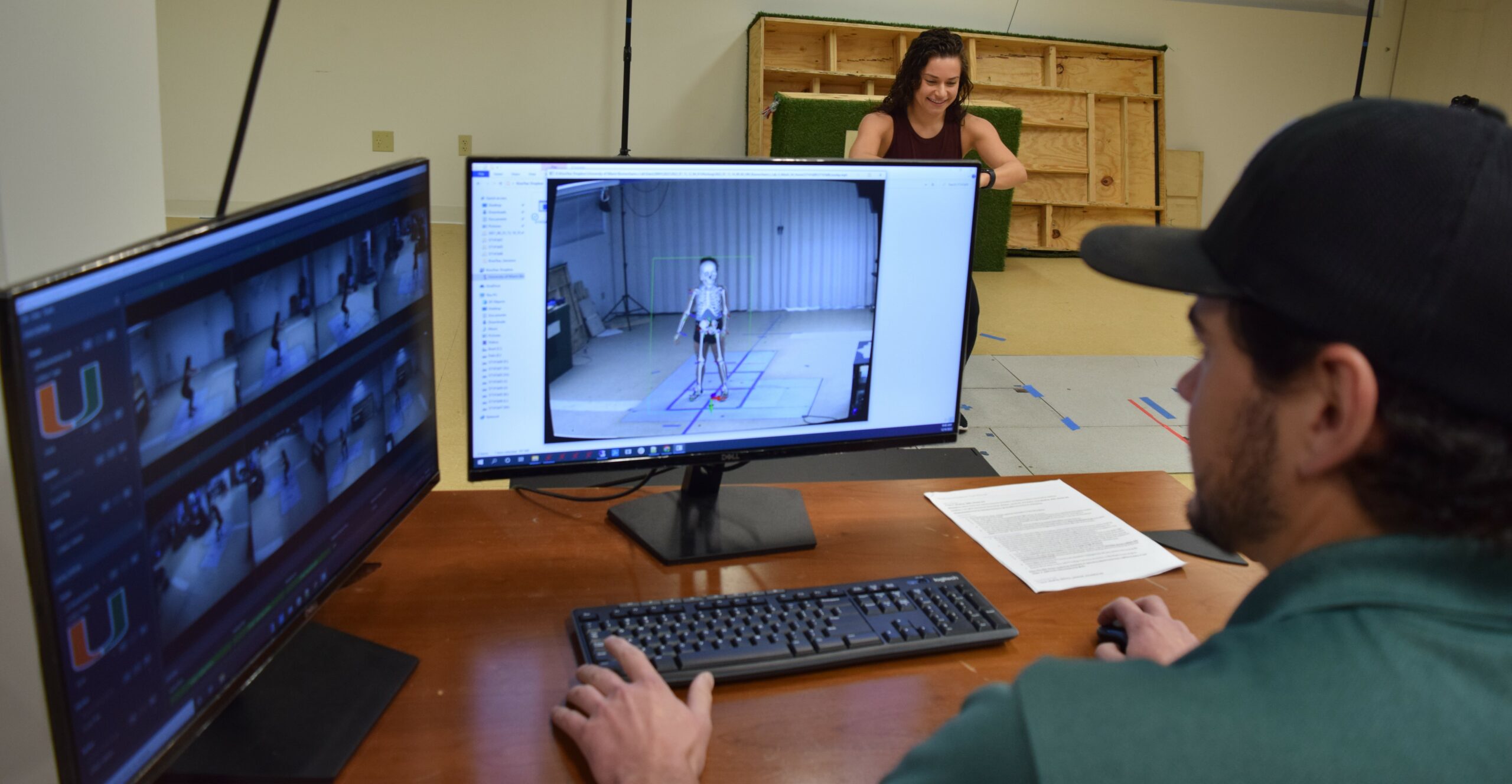By Krysten Brenlla
Athletes and injuries are like two peas in a pod – sometimes, there is no way to avoid it. After playing multiple sports growing up and suffering from several injuries, Zachary Ripic, a PhD graduate from the University of Miami, was drawn to kinesiology and exercise science.

He took his education a step further with his PhD research at the university’s School of Education and Human Development Department of Kinesiology and Sport Sciences, specifically the Sports Medicine and Motion Analysis Laboratory at the Max Orovitz Laboratory, which is led by Dr. Moataz Eltoukhy.
Ripic and Eltoukhy used the lab’s KinaTrax makerless motion capture system. The system, from the Boca Raton company KinaTrax, uses high-speed video cameras to record the subject’s motion, to study motion analysis for athletes and patients with Parkinson’s disease.
In addition to research on motion analysis, the lab also uses artificial intelligence (AI) technology to deliver biomechanical analyses for physicians, physical therapists, and coaches that will help them analyze clinical gaits for patients with neurological disorders, and athletes’ motions for athletic performance improvement. The lab is leading the research on AI-driven markerless musculoskeletal modeling and collaborates with researchers across different departments in the university, as well as collaborators from institutions across the nation to make their research and technology a reality.
Refresh Miami sat down with Ripic and Eltoukhy to learn more about the lab’s makerless motion capture system and what the research entails for the future.
This interview has been condensed and edited for clarity.
Refresh Miami: Can you talk through the technology being used in the lab? How does it work?

Eltoukhy: Since 2015, we started this research to integrate from marker-based to markerless. In marker-based, any time you want to evaluate a patient or player, they had to come to the lab, which means spending a few hours of their day in the lab for data collection – it’s a pretty long and time-consuming process. We wanted to start doing this data collection in a more natural setting, like the field, a clinic, or even at home. So a few years ago, we integrated machine learning, which is the same technology used in video games or your Xbox camera, and combined this technology with video game accessories for markerless motion capture. Now, we can record a patient or a player in the field, home, or in a clinic, and we can send the data to the physician, coach, or therapist for analysis. And, the huge advantage of this is that patients don’t need to wear any special clothing – they can be recorded in their regular clothing, in their natural settings.
Refresh Miami: What are some of your goals using artificial intelligence within the markerless motion capture system?
Eltoukhy: With this new technology, we’re trying to reach a more accurate diagnoses for patients with diseases like Parkinson’s. Currently, physicians rely on subjective measures like questionnaires or visual assessments to make a diagnosis; we want to change this and go from subjective assessments objective assessments based on the data we collect.
Ripic: The whole idea of using markerless capture is to become more efficient in what we do. Instead of virtually cleaning up markers and then modeling the human, we just skip the human step and put it into a skeletal model to get data back on Parkinson’s disease, or even monitoring any type of small movement.
For example, when looking at an athlete with the videos collected using this technology, the coach can understand the different angles from the pitchers. They can look at arm speeds, or get data on the tissues from the elbow or shoulder. These are all outcome measures that can be tracked overtime.
Have you tested your research on individuals already? What have been their results?
Ripic: In the lab, we have already used this technology to look at subjects while walking to analyze their walking speeds and stride lengths. We have also used this technology to analyze the angles produced in younger and older adults with Parkinson’s disease. In addition, we’re collaborating with physical therapy for stroke and coma patients.
What are some your goals for the lab and for this research?
Ripic: Currently, we’re developing more testing to analyze athletes after they’ve suffered an anterior cruciate ligament (ACL) injury. With ACL injury research, we can use this technology and the videos to study the movements that caused the injury, instead of looking back at the video later and subjectively guessing why that might have happened. One of the large benefits of makerless is, if we can get these systems in a physical therapy clinic or on a field where the movements can be tested, it can create an automated pipeline to get these results back efficiently for clinicians to use. The initial plan is to design an objective testing program to return these athletes to sport and their previous levels of performance.
Eltoukhy: Our ultimate goal is to use more than one camera to get this artificial intelligence system to work. In the next 2-3 years, we’ll be able to replace the current systems, which is using multiple cameras, with just one camera to achieve our ultimate goal of capturing everything on a mobile device. My goal is to have the physician bring their phone, record the patient in the clinic, and then the artificial intelligence technology will take care of everything and give the result on the spot. If we’re successful, we’re hoping to create an app that is available for everyone to use the artificial intelligence model for more accurate assessments and evaluation for patients and athletes.
For more information on the Max Orovitz Laboratory at the University of Miami, visit their website at https://kin.edu.miami.edu/centers/max-orovitx-lab/index.html.

Moataz Eltoukhy and Zachary Ripic in the University of Miami’s Max Orovitz Laboratory.
READ MORE ON REFRESH MIAMI:
- This UM professor’s startup uses the power of light to combat violent threats
- Miami is an ‘Emerging Global City’ but our tech ecosystem still has a ways to go, professors say
- The future is augmented reality, says Magic Leap CEO Peggy Johnson
- Miami shines, ranking as a top ecosystem in the world
SUPPORT LOCAL NEWS: Refresh Miami is proud to keep our news articles paywall free and accessible to all. If you enjoy our content, please consider supporting us by becoming a paid subscriber or making a donation.
- From The Bronx to South Florida, this ed-tech founder is working to build STEAM skills for our future workforce - April 25, 2024
- TENNTS introduces AI robot to co-working center as part of Miami proptech’s commercial market expansion - April 11, 2024
- Get your calendars ready for all that #MiamiTechMonth has to offer - April 10, 2024





